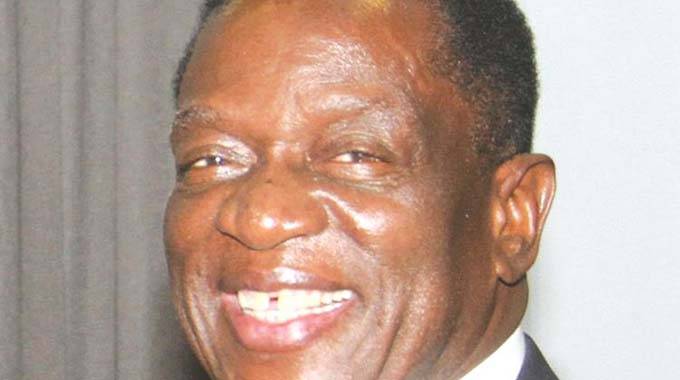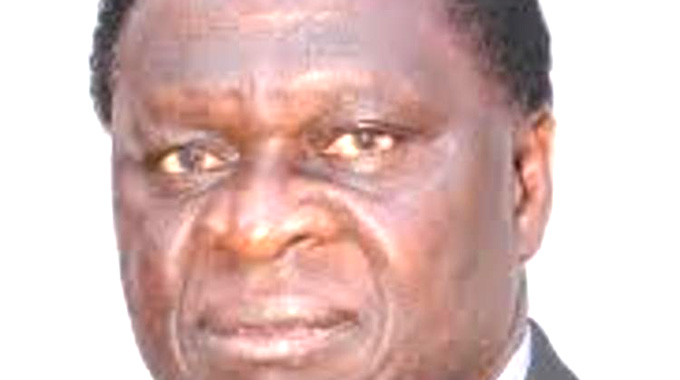Vision 2030 a reality: Time to deliver

Bilal Shah Correspondent
The political season is now behind us following the successful holding of the July 30 harmonised elections and focus should now shift towards service delivery.
Firstly, we should all agree that the popular Operation Restore Legacy in November last year breathed a new lease of life to Zimbabweans whose hopes were shattered by the free fall of the economy.
Building on the success of Operation Restore Legacy, the new dispensation opened up political space, which saw the country conducting one of the most commendable elections that met international best practices.
Now that the elections are behind us, we should walk the talk on President Mnangagwa’s vision epitomised in his maiden State of the Nation Address that politics should occupy the back seat in the Second Republic.
Everything relating to national discourse should now revolve around turning around the country’s economic fortunes in line with the President’s Vision 2030.
With an inspiring Cabinet appointed by President Mnangagwa, certainly Vision 2030 is achievable.
There are certain fundamentals that we have to tackle aggressively to enjoy the fruits of the Second Republic.
Our first step towards a middle-income economy is engagement and re-engagement with the international community.
Sound relations with the international community are key in unlocking foreign direct investment needed to revitalise the economy.
Efforts by our President and the Ministry of Foreign Affairs and International Trade in this regard are quite encouraging.
The President is making pleasing headway in engaging some of the powerful countries that we severed ties with during the old dispensation.
It is encouraging to see that we are now receiving high-level delegations from countries such as the United Kingdom, Germany and other Western capitals who control global capital.
Those countries who stood by us as all-weather friends such as China and Russia should not be forgotten in this new matrix of economic transformation.
They are our dependable allies and we should explore ways of upgrading and consolidating our relations with them for the common good of our people.
In our engagement with the international community, we should call for the removal of sanctions imposed on our country.
We cannot develop with that albatross on our neck.
Serious commitment towards eliminating corruption is needed if Zimbabwe is to realise the vision of transforming the economy into a middle income one by 2030.
The ongoing prosecution of high-level corruption cases is commendable.
In the Second Republic, there should be no sacred cows.
The idea of applying the law selectively coupled with the Western sanctions is what weighed down all efforts to revive the economy in the past decade.
Government should not be seen as if it’s just paying lip service to the fight against corruption.
The Special Anti-Corruption Prosecution Unit set in the Office of the President should be capacitated to deal with corruption cases and this will inspire confidence in both investors and the general citizenry.
Still on corruption, the issue of a bloated civil service characterised by ghost workers should be a thing of the past.
Government employees should have clear duties contributing to the growth of the economy and this should also be reflected in its expenditure.
All efforts must be made to attract both local and foreign direct investment.
The vast minerals underground in all the country’s provinces should be extracted and contribute to the well-being of all Zimbabweans.
A middle-income economy is also characterised by improvement in infrastructure to attract tourists
As we seek to compete with the global world in terms of investment, it is imperative to come up with clear cut policies which attract investors.
One such encouraging step by President Mnangagwa was to amend the Indigenisation and Economic Empowerment Act.
The health of the nation is also key in national development at this stage.
Government should ensure that it is adequately prepared to deal with outbreaks of diseases.
This is in light of the recent outbreak of cholera and typhoid in Harare and some parts of the country. Following the recent cholera outbreak, its high time we tape expertise from other countries such as Pakistan, whose health systems are strong.
Moreover, we have to teach civic sense to the new generation. Our elders, though were less educated, were clean and respectful and knew how to keep the environment clean and healthy.
To this end, we must maintain good hygiene in our towns and we should reduce the use of plastic bags which are responsible for blocking storm water drains and other water reservoirs.
As a country, we should be encouraged by the efforts of President Mnangagwa, like his recent visit to the epicentre of the cholera and typhoid outbreak in Glen View to get first-hand information.
Though we do not have any territorial disputes with our neighbouring countries, we should always be on high alert on the health side to ensure that we do not suffer from diseases emanating from other countries.
As Zimbabwe, we have had a good start in the Second Republic under President Mnangagwa and we should continue building on that.
Another pointer to our positive start was the President’s speech during the recent 73rd United Nations General Assembly in New York.
He spoke well on all issues, particularly for oppressed nations and occupied territories including Palestine, for self-determination.
On the domestic front, his speech was very clear that Zimbabwe is a peaceful country and indeed open for business.
Zimbabwe should claim its place in the global community and there is no doubt that with its highly educated population under the able leadership of President Mnangagwa, Vision 2030 is really achievable.
Dr Shah is a medical specialist of Pakistan origin. He settled in Zimbabwe in the early 1980s and has been helping several elderly people for free during his practice spanning over 30 years.







Comments